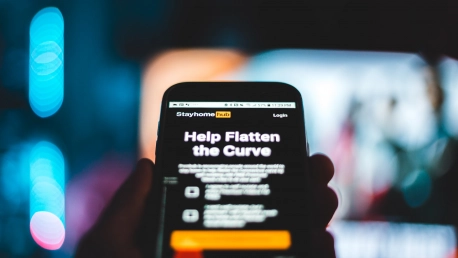Any global pandemic can result in rapid and profound changes in societies around the world. Healthcare, education, politics, and economies everywhere are known to change after suffering the consequences that emerge during a pandemic, and the recent COVID-19 crisis is no exception to the rule. Health and well-being are essential for any resilient society, and it’s only these societies that can rapidly overcome the great challenges that will certainly follow in the wake of a pandemic. However, during an outbreak, it is usually the healthcare system that receives the first and greatest blow.
Healthcare systems around the world are different, and the actions taken to contain the spread of the new coronavirus have been accordingly different. However, most people in Europe, North America, Australia, Japan, and South Korea trust the way their own countries responded to the outbreak, according to a new Pew Research Center survey. It remains to be seen whether these actions are not only enough to fight the pandemic, but also to provide people with access to every medical service they need.
Healthcare Systems on the Brink
Flattening the curve for COVID-19 was one of the most important topics this year, and the reason for this is that most people believed that only by slowing the spread of coronavirus would countries be able to protect their healthcare systems. Even so, medical professionals around the world are struggling, while individuals seeking medical care are left with little or no access to services in some countries. Pediatrician Natividad Gil García warned that the Spanish medical system has already collapsed and will ground to a halt in the following weeks.
“We deal with the cases that arrive, we also do the contact tracing because there aren’t enough people, we organize the PCR testing, we make the calls to get the results and do all the follow-ups. Everyone who is in primary health care is suffering from this overload of work but also the patients as well,” she added, while also talking about the health professionals’ strike as being the “last resort” for doctors and nurses lacking help from the government.
Spain is not alone in struggling to keep its healthcare system from collapsing. While in Brazil the system has proved unable to cope with the sudden load of the rapidly spreading coronavirus, India’s hospitals lack doctors, medical equipment, and ICU beds.
More Problems Taking Center Stage in Healthcare
The COVID-19 pandemic is not alone in threatening our health and well-being. Infectious diseases like AIDS, tuberculosis, and malaria are still important problems around the world, while chronic diseases like diabetes and obesity are putting more strain on healthcare systems in developed economies. Access to healthcare is not always easily available to everybody, and many countries are still struggling to provide their citizens with good medical services. The new coronavirus pandemic has proved to be a great threat for healthcare systems all over the world not only because of the risks associated with contracting the disease, but also because it may block our ability to deal with other important challenges.
At the beginning of 2020, research proved that numerous girls and young women in the U.S. have undergone invasive gynecological exams that might have not been required, including unnecessary pelvic exams. An estimated 2.6 million girls and young women in the U.S. alone received a bimanual pelvic examination in the past year, and 54.4% of these examinations were potentially unnecessary, the study shows. Researchers added that 71.9% of the Pap tests performed on young women during this period were also potentially unnecessary. While this may only point to unnecessary expenses, other findings suggest that sometimes these exams are conducted without consent from the women in question, while they are under anesthesia.
As research showed that the practice is widespread, these findings prompted women to create #MeTooPelvic, a movement inspired by the more famous #MeToo. After the COVID-19 pandemic broke out, news regarding this and other important problems of the U.S. healthcare system have all but disappeared from the news and other media.
Healthcare after the COVID-19 Pandemic
As healthcare systems all over the world are diverting more and more of their resources to fighting the pandemic, we are probably left with numerous healthcare problems going unnoticed. In August 2020, the Centers for Disease Control and Prevention (CDC) issued a warning indicating that an increasing number of people experienced worse mental health outcomes, increased substance use, and elevated suicidal risks at the end of June. 40% of U.S. adults are struggling with mental health, according to the CDC.
“The public health response to the COVID-19 pandemic should increase intervention and prevention efforts to address associated mental health conditions,” warns the health protection agency. However, with fear and economic hardship on the rise and healthcare resources redirected to the pandemic response, mental health may prove to be just another problem that will be addressed at some point in the future.









